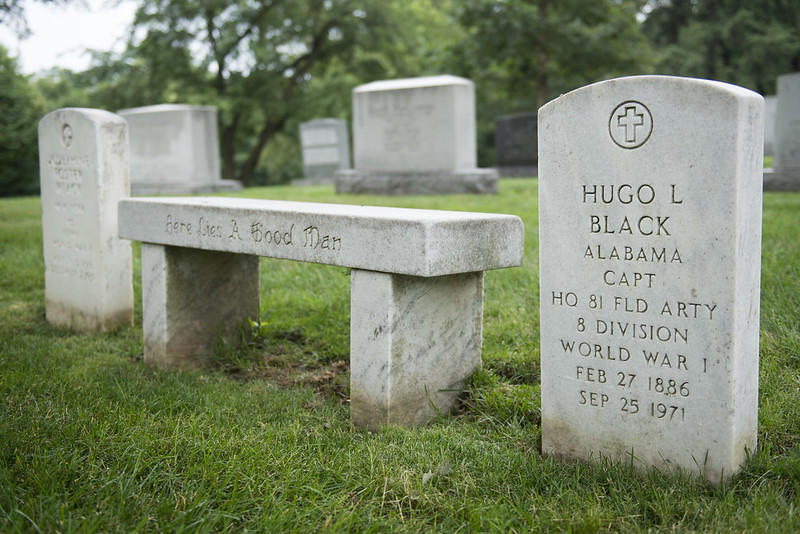Hugo L. Black

Section 30, Grave 649-LH
Hugo Lafayette Black was born in 1886 in rural Harlan, Alabama. An excellent student, he initially enrolled in medical school, but soon transferred to the University of Alabama Law School, graduating in 1906 as the youngest student in his class. During the early years of his career, he served as a police court judge, often representing poor rural clients. In 1914, he was elected as a county prosecutor, beginning a political career (briefly interrupted by U.S. Army service during World War I) that would culminate in his election to the U.S. Senate as a Democrat in 1926. Representing Alabama for two terms (12 years), Senator Black strongly supported President Franklin D. Roosevelt's New Deal — he sponsored the bill that became the Fair Labor Standards Act of 1938 — and earned a reputation as a government reformer.
In August 1937, President Franklin D. Roosevelt nominated Black to serve as an associate justice on the Supreme Court of the United States. Black's nomination proved controversial, in part due to his former membership in the Ku Klux Klan (which Roosevelt had not known about). Black had joined the Klan in 1923, as he prepared to run for the Senate. During the mid-1920s, the KKK's membership had grown dramatically, peaking at around five million. However, Black came to believe that affiliation with the Klan would ultimately harm rather than help his political career, and he resigned from the organization in 1925. Black's KKK membership did not prevent the Senate from ratifying his nomination to the Supreme Court, but it would remain controversial throughout his career.
During his years on the court, Black reportedly always carried a copy of the United States Constitution in his pocket. He became known as a Constitutional literalist, or "textualist," basing his legal opinions on the text of the Constitution. He also advocated judicial restraint, believing that law should be made by legislatures, not the judiciary. A First Amendment absolutist, Black wrote important opinions on free speech, freedom of the press, and the separation of church and state.
Following a stroke, Hugo Black retired from the Supreme Court on September 17, 1971. He passed away eight days later.